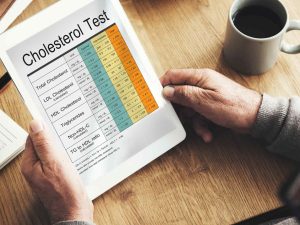How to Increase Dopamine Levels Naturally

Table of Contents
You have the power to be happy. All you need to ensure is that you increase your dopamine levels. The good thing is that you can do that naturally. Here’s all about how dopamine helps you, and how you can increase your dopamine levels naturally by resorting to activities such as exercises, meaningful social connections, meditation, and even how certain foods help enhance dopamine production. ~ Ed.

Do you believe that the word ‘dope’ was derived from “dopamine” (a feel-good neurotransmitter that is strongly associated with feelings of pleasure and reward)? I happened to look this up, and it turns out that these terms do not relate to each other AT ALL. This eerie similarity is purely coincidental!
For those who are not aware of dopamine’s function in the human body – The next time you have your much-loved chocolate or cheese dip, and it makes you “feel good”, know that your brain is firing away neurons responsible for the production of dopamine.
However, the function of dopamine is not just limited to making you feel good. Dopamine is a complex neurotransmitter, which directly affects your mood, memory, attention, sleep, libido, appetite, internal motivation, decision-making capability, and more crucial functions.
If released optimally, dopamine can help you:
- Feel Happier, Satisfied, and Motivated
- Keep Depression at Bay
- Have Better Memory
- Decrease the Risk of Parkinson’s or other Cognitive Disorders
- Lose Weight
- Eliminate Compulsive Behaviours and Thought Patterns
What are the Consequences of Dopamine Imbalance
An imbalance of dopamine can result in addictions, memory problems, mood swings, and lack of focus. Over the past few decades, medical practitioners around the world have been prescribing medications to cope up with serotonin and dopamine deficiency in people suffering from mental health problems.
Although these drugs can treat symptoms of various mental health conditions, they come with potential side effects, including dizziness, nausea, irregular heartbeats, vomiting, headache, chills, goosebumps, anxiety, shortness of breath, and insomnia.
Some people turn to drugs, such as cocaine and heroin, that can boost dopamine production significantly, and the ‘highs’ one experiences through such substances can initiate a never-ending circle of drug abuse and addiction. This happens because the body experiences a temporary increase in dopamine production, which makes it seek out such pleasurable experiences time and again.
On the other hand, when the brain cells do not produce enough dopamine, a person could experience a lack of pleasure from any activities in their life, which can cause clinical depression, obesity, and various health problems, including Parkinson’s disease.
7 Natural Ways to Get Your Daily Dopamine Dose
Fortunately, there are natural ways in which a person can increase their dopamine levels without experiencing any side-effects.
Exercise
Research suggests that exercise can play a crucial role in restoring mental health by boosting the production of a cocktail of happy neurotransmitters, including dopamine, endorphins, and serotonin in the body. Not only that, exercise is known to have a profound effect on an individual’s neural networks, which enables them to be more focused and productive.
And the best part is that the exercise doesn’t need to be excruciating in any sense. Simply taking a short walk or climbing stairs results in the production of adequate quantities of dopamine in the body.
Eat Dopamine Inducing Foods
Eating certain types of foods can enhance your dopamine and serotonin production. Below listed nutrients, if included in the daily diet, can prove to be amazing “mood up-lifters”.
- Tyrosine: Almonds, Avocados, Bananas, Coffee, Eggs, Green Tea, Milk, Watermelon, Yogurt, Beef, Chicken, Dark Chocolate
- Phenylalanine: Dairy, Eggs, Fish, Seeds, Soy products, Meat, Nuts
- Caffeine: Coffee, Tea, Dark Chocolate
- Resveratrol: Blueberries, Pistachios, Wine, Dark Chocolate, Grapes, Peanuts, Cranberries, Cocoa
- Tryptophan: Whole wheat bread, Potatoes, Chicken, Eggs, Sesame Seeds, Cheese, Fish, Peanuts, Pumpkin, Milk, Turkey
- Pregnenolone: Butter, Dairy, Eggs, Meat
- Folate: Green leafy vegetables, such as kale and spinach, Fruits and Fruit juices, Meat, Nuts, Poultry
- Omega-3 Fats: Avocados, Canola oil, Nuts, Flaxseed, Chia Seeds, And Walnuts, Salmon, Mackerel, Tuna, Herring, Sardines, Olive oil, Peanut oil
Related Posts
Be Socially Active And Get Human Contact
People having a strong sense of social connection and engaged in meaningful relationships release higher amounts of oxytocin in their body, which in turn, triggers the release of dopamine and serotonin. Such individuals are also reported to have lower rates of anxiety and depression and higher self-esteem.
In addition, human contact in form of a hug, caress, or even a handshake can trigger dopamine production, not just for you, but also for the person on the other end. The concept also extends to other mammals, including your pet dogs or cats. So, next time your dog throws itself at you, be sure to reciprocate the affection right back.
Make A Check-List For Daily Goals
When you prepare a check-list of tasks on a daily basis and are able to get through them successfully, your brain produces dopamine, irrespective of the size and nature of the task.
If you are working on a relatively larger project, breaking it down into smaller tasks will enable your brain to identify mini-rewards on the way, and this will drive you to get through from one mini-goal to another. Further, studies have shown that dopamine release is amplified if you physically check a task off your to-do list.
Meditate
Meditation has become a buzzword in today’s times. Several research studies have shown the positive effects meditation can have on an individual’s mental health. Meditation can help you quiet your mind, develop new mental circuitry and optimize your dopamine production while you refrain from doing anything or overthinking about any aspect of your life.
Overthinking can result in a reduction of your dopamine levels, so taking some time out to slow down and create some space in your brain helps you be happier, calmer, and productive. You can find a myriad of ways and suggestions to meditate online, including specific breathing techniques, listening to particular sounds, and guided meditative sessions.
You can choose the one best suited for your needs and start with meditating for 10-15 minutes a day. Practicing meditation every day can have a calming effect on your brain and enhance the release of dopamine in the body.
Get Into A Flow State
The psychological state of becoming hyper-focused when you’re doing something you love has been termed as the state of ‘flow’ by psychologists, around the globe.
Psychologist Mihaly Csikszentmihalyi was the first person to coin this term and describe it as ‘an optimal state of consciousness where we feel our best and perform our best.’ American author and journalist Steven Kotler has delved deeper into explaining the neurochemical changes occurring in the brain during these states.
According to the research, in this state of ‘flow’, the brain boosts the production of various ‘feel-good’ and performance-enhancing chemicals, including norepinephrine, dopamine, anandamide, serotonin, and endorphins. Further, towards the end of a flow state, a significant amount of serotonin releases, leaving you with an ‘afterglow’ and a feeling of greater satisfaction and joy.
This implies that when you engage yourself in doing something you’re passionate about, your brain releases a variety of chemicals that not only gives you a dose of happiness while doing the activity but keeps you motivated to engage in similar pursuits in the future.
Express Gratitude
Not enough has been said about the power of gratitude in our daily lives. Gratitude is an instant mood-enhancing practice because it can lead to the immediate production of dopamine and serotonin in the brain. Individuals who consciously practice gratitude every day can create powerful neural pathways in the brain responsible for generating feelings of long-lasting happiness, optimism, and satisfaction.
Meditation coaches term gratitude as a ‘natural antidepressant’. The effects of practicing gratitude have been reported to be almost comparable with psychotic medications. To get started with practicing gratitude, prepare a gratitude journal, wherein you list down all the things you are grateful for every day. Begin and end your day by reading your gratitude journal for that instant dose of dopamine.
Wrapping it up
Dopamine is a neurotransmitter that is associated with reward-motivated behaviour and is responsible for regulating the general moods of an individual.
Its deficiency can lead to numerous diseases, for instance, degenerative Parkinson’s disease occurs as a result of the loss of dopamine-secreting neurons leading to motor impairment. Dopamine deficiency can also contribute to a lack of motivation, focus and is one of the leading causes of depressive disorders.
You can regulate dopamine levels naturally with diet, exercise, sleep, meditation, and certain medications. Certain addictive substances and habits, such as smoking or gambling, may lead to a dopamine surge for a brief span of time but may impair quality of life in the long run.
Action Tips
In order to optimize your dopamine levels, make some conscious choices every day:
- Physical Activity: Even if it just includes taking stairs to your work every day, try to make that effort to move your body on purpose. It will not only get you in good shape, but it will also get you in a good mood.
- Balanced Eating: Maintain a healthy, balanced diet that not only meets your nutritional needs but also helps induce dopamine on a daily basis.
- Get Social: In addition to adding an element of fun in your life, maintaining healthy relationships can make your heart happy and help you live longer. So go out and plan get-togethers with your loved ones.
- Practice Stillness: Getting some quiet time helps your brain to recover from all the chaos of the day and self-regulate itself to produce the optimum levels of dopamine consistently.
- Be Grateful: No matter how bad things seem, there is always something to be grateful about. Expressing gratitude every day results in the overall well-being of an individual.
- Get things done: Nothing is a buzz-killer than a pending list of errands that you have been avoiding for days. Now you have another reason to keep procrastination at bay.
- Adequate Sleep: Following proper sleep, hygiene ensures that you are getting enough quality rest each day, which in turn balances your brain to produce enough quantities of dopamine.
Over to you
How do you ensure that your dopamine levels are naturally high? Share your thoughts and tips in the comments section.
Disclaimer: We're not offering any medical advice here. These ideas are for educational and entertainment purposes only. Always seek a professional medical opinion from a physician of your choosing before making any medical decision. The information provided here is not intended to be a substitute to the advice given by your physician or another healthcare professional.
Disclaimer: Though the views expressed are of the author’s own, this article has been checked for its authenticity of information and resource links provided for a better and deeper understanding of the subject matter. However, you're suggested to make your diligent research and consult subject experts to decide what is best for you. If you spot any factual errors, spelling, or grammatical mistakes in the article, please report at [email protected]. Thanks.














